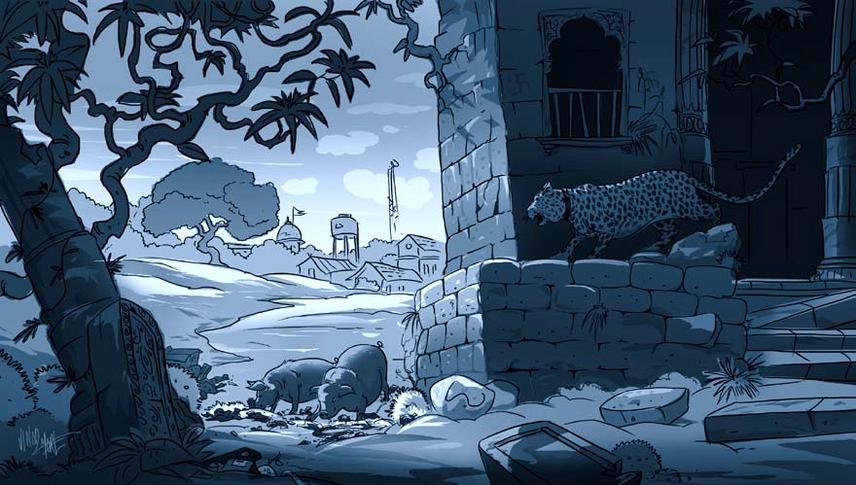Vidya Athreya
Other projects
14 Apr 2003
Training Maharahtra Forest Department Personnel to Use Chemical Restraint and MIicrochips to Better Manage Man – Leopard Conflict
11 Apr 2006
Addressing Human-Leopard Conflict via a Conflict Management Manual Aimed at the Managers in the Severely Affected States of India
2 Sep 2013
National Level Media Awareness Workshops in Four High Leopard Conflict States in India
This project aims to educate a wide audience on the reasons for the conservation efforts, policies and management that aim to protect species like the leopards.

Illustration from brochure.
Our studies since 2003 indicate that human leopard conflict is more a socio-political problem related to the lack of information our society has on the issue. This is worsened by the sensational media reportage resulting in a severe public pressure on the administration, and the subsequent trapping of many innocent leopards. These leopards are then released because neither lethal control nor permanent captivity are feasible options in present day India. Conflict increases near the sites of release of these leopards creating a vicious cycle of conflict and subsequent lowered tolerance towards the species. The ultimate survival of the leopard depends on the willingness of people to share their space with carnivores like the leopards but given the current lack of awareness on the issue, the conflict will not ease unless the public are educated.
In this project I propose to produce a movie so that awareness is created at a national level. The proposed film in three languages will be aired on national television, distributed among targeted media professionals and also screened at the village grass root level. It will sensitise the policy makers, national and the local media and also remind the locals of their own principles of co-existence. I also propose to carry out a state level education programme targeting village administrative bodies in two human dominated landscapes (Ahmednagar and Nashik Forest Divisions) in Maharashtra where large number of leopards are present and where severe conflict has ranged in the past. The education programme aims to sensitise the villagers who live with the leopards on the complexities of the issue and educate them on methods to decrease the conflict. I hope to use the results of this work as an input for policy that will govern the management of such carnivores when they live outside protected areas and near people.